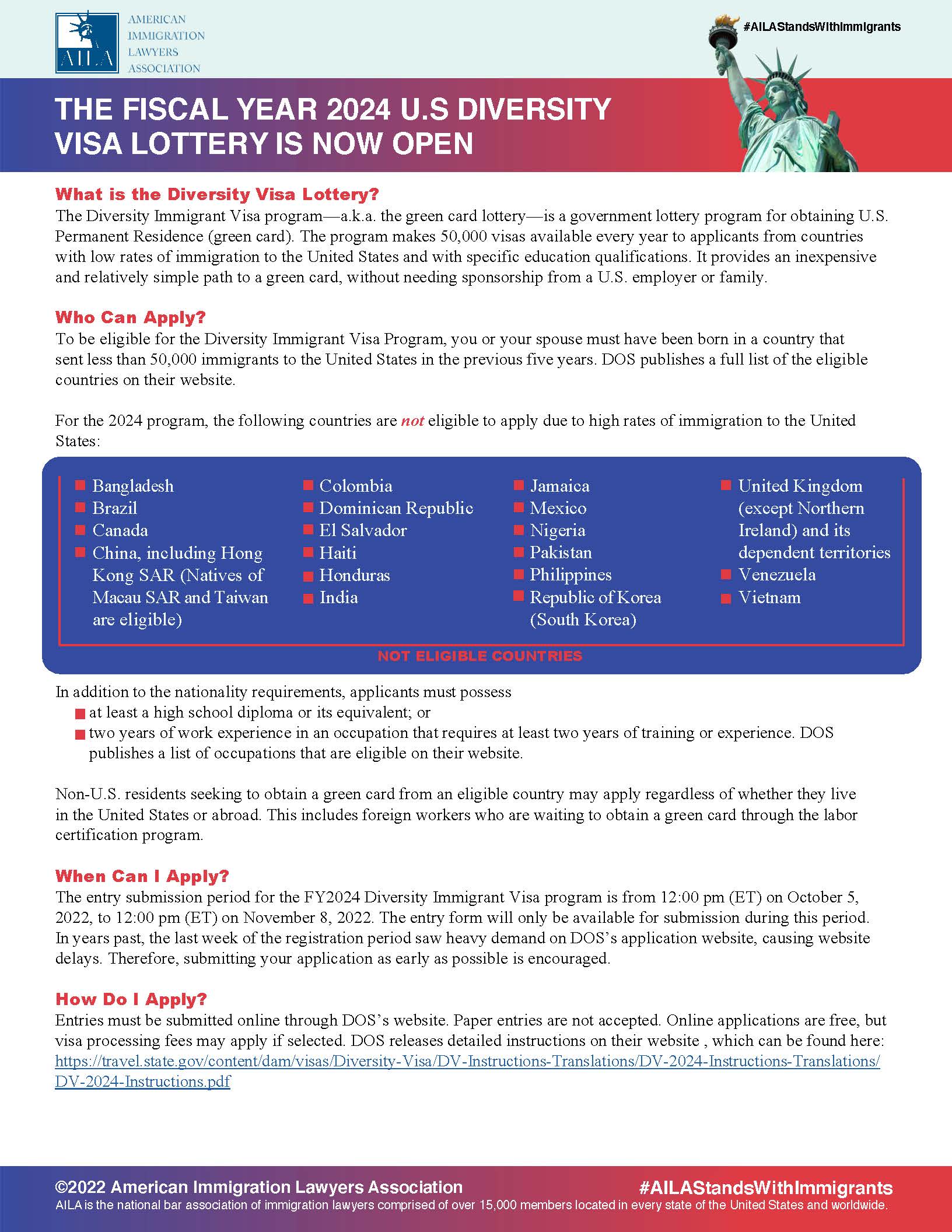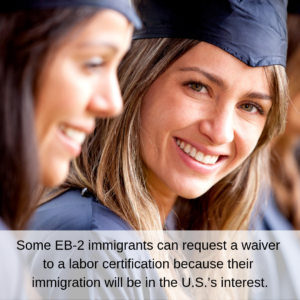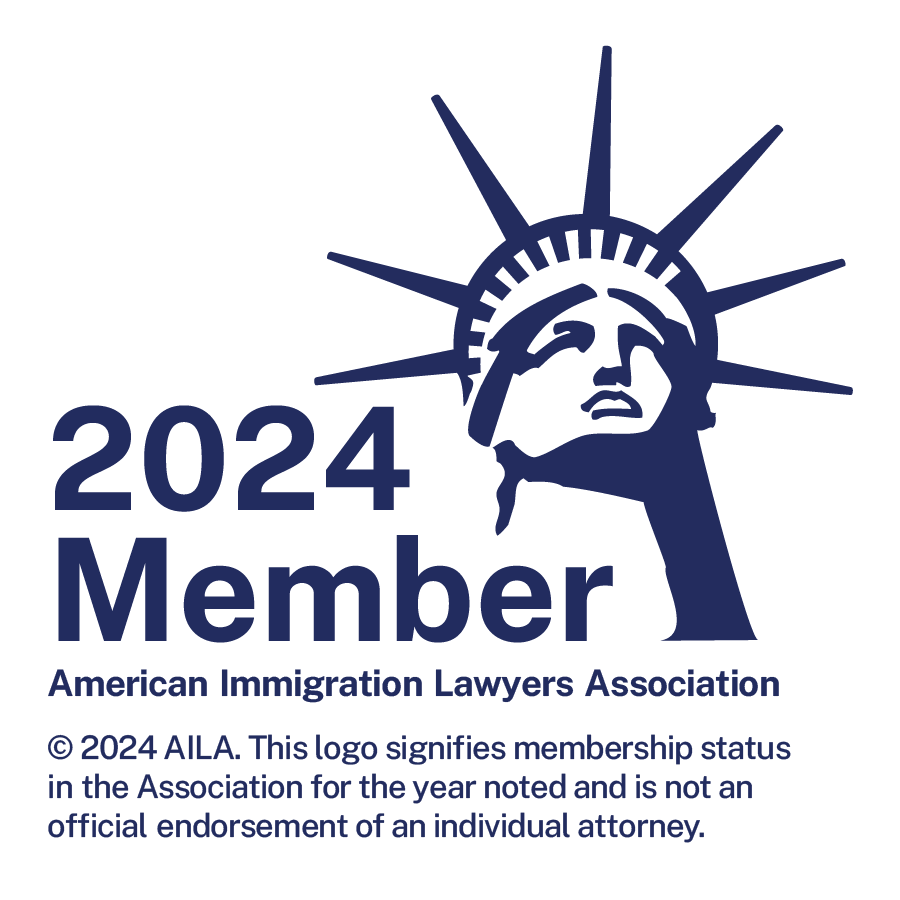Green Card Validity Extended For Those That Have Applied For U.S. Citizenship
Effective December 12, 2022, USCIS is extending the validity of green cards for 24 months upon filing an Application for Naturalization (N-400). The N-400 receipt notice and the expired green card will serve as evidence of lawful permanent residence status and satisfy the identity and employment authorization documentation for Form I-9, if presented before the 24-month extension period expires. This will eliminate the need to file for a replacement green card (Form I-90) in some cases.
The Fiscal Year 2024 U.S. Diversity Visa Lottery is Now Open!

How to Protect Your Permanent Residency in the United States

Starting October 1, 2021 COVID-19 Vaccinations Will be Required for Applicants Applying for Lawful Permanent Residence or Refugee Status, with some exceptions.
The entire vaccine series (1 or 2 doses depending on formulation) must be completed in addition to the other routinely required vaccinations. Please go to https://www.cdc.gov/immigrantrefugeehealth/civil-surgeons/covid-19-technical-instructions.html for details.
IMMIGRANT VISA (GREEN CARD) PROCESSING DELAYS

The U.S. Citizenship Act of 2021
President Biden is sending a bill to Congress on day one to “restore humanity and American values to our immigration system” per the press release.
Some highlights of the bill are set forth below. Exactly how these provisions will be implemented is not yet known.
Create an earned roadmap to citizenship for undocumented individuals. The bill allows undocumented individuals to apply for temporary legal status, with the ability to apply for green cards after five years if they pass criminal and national security background checks and pay their taxes. Dreamers, TPS holders, and immigrant farmworkers who meet specific requirements are eligible for green cards immediately under the legislation. After three years, all green card holders who pass additional background checks and demonstrate knowledge of English and U.S. civics can apply to become citizens. Applicants must be physically present in the United States on or before January 1, 2021. The Secretary of the Department of Homeland Security (DHS) may waive the presence requirement for those deported on or after January 20, 2017 who were physically present for at least three years prior to removal for family unity and other humanitarian purposes.
Lastly, the bill further recognizes America as a nation of immigrants by changing the word “alien” to “noncitizen” in our immigration laws.
Keep families together. The bill reforms the family-based immigration system by clearing backlogs, recapturing unused visas, eliminating lengthy wait times, and increasing per-country visa caps. It also eliminates the so-called “3 and 10-year bars,” and other provisions that keep families apart. The bill further supports families by more explicitly including permanent partnerships and eliminating discrimination facing LGBTQ+ families. It also provides protections for orphans, widows, children, and Filipino veterans who fought alongside the United States in World War II. Lastly, the bill allows immigrants with approved family-sponsorship petitions to join family in the United States on a temporary basis while they wait for green cards to become available.
Grow our economy. This bill clears employment-based visa backlogs, recaptures unused visas, reduces lengthy wait times, and eliminates per-country visa caps. The bill makes it easier for graduates of U.S. universities with advanced STEM degrees to stay in the United States; improves access to green cards for workers in lower-wage sectors, and eliminates other unnecessary hurdles for employment-based green cards.
The bill provides dependents of H-1B visa holders work authorization, and children are prevented from “aging out” of the system.
The bill also creates a pilot program to stimulate regional economic development, gives DHS the authority to adjust green cards based on macroeconomic conditions, and incentivizes higher wages for non-immigrant, high-skilled visas to prevent unfair competition with American workers.
“Incentivizes higher wages for non-immigrant, high-skilled visas” is concerning, as DOL just issued a final rule that increases prevailing wages and DHS issued a rule on a wage-based H-1B CAP lottery selection process. The Biden-Harris Administration is planning to issue a regulatory freeze on Trump’s “midnight regulations” that he issued in his final days, which should include these new H-1B rules. We will closely monitor actions and updates.
Guide to Employment-Based Green Cards
Some non-United States citizens who hold work visas are eligible for green cards – and that means they get to live and work permanently in the U.S. Other than family-based green cards, employment-based green cards are the most common ways for foreign nationals to obtain permanent residency here.
What is an Employment-Based Green Card?
If you’re a foreign national living in the U.S. on an H1B or student visa, or if you’re currently residing outside the U.S., you may be eligible for employment-based green cards if an employer sponsors you. You and your employer must follow a specific process so you can get this type of green card, and your employer must provide proof of a labor certification and several other documents.
Applicants who live in the U.S. on a visa can apply for adjustment of status to obtain an employment-based green card. People who live outside the U.S. can go through consular processing instead.
Categories for Employment-Based Green Cards
Employment-based green cards are available to people who fall into one of five categories. Most workers fall into the first three, but all the categories are:
- EB-1 priority workers
- EB-2 professionals with advanced degrees or persons with exceptional ability
- EB-3 skilled or professional workers
- EB-4 Special immigrants
- EB-5 Investors
EB-1 Priority Workers
EB-1 priority workers are people of extraordinary ability in the arts, sciences, education, business or athletics, as well as outstanding professors and researchers who have received national recognition for achievements in their fields. Priority workers also include multinational managers or executives.
You must meet certain criteria to qualify as an EB-1 priority worker, which your employment-based immigration lawyer can explain to you.
EB-2 Professionals With Advanced Degrees or Persons With Exceptional Ability

EB-2 professionals with advanced degrees and EB-2 persons with exceptional ability must be applying for a job that requires an advanced degree, or must be able to show exceptional ability in the arts, sciences or business. Some EB-2 immigrants can request a waiver to a labor certification because their immigration will be in the U.S.’s interest. These immigrants don’t need an employer to sponsor them and can file directly with U.S. Citizenship and Immigration Services.
In order to qualify for this type of green card, you must provide documentation that proves that you have at least 10 years of full-time experience in your occupation and that you’re licensed (if necessary) to perform it. Your attorney can help you determine what other documentation you need.
EB-3 Skilled or Professional Workers
EB-3 skilled workers and professionals, as well as some unskilled workers, often qualify for green cards based on the needs of U.S. employers. Skilled workers must demonstrate at least 2 years of job experience or training, and professionals have to provide proof that they have a U.S. baccalaureate degree (or a foreign equivalent). Unskilled workers must be capable of performing unskilled labor that’s not temporary or seasonal. In every instance, employers must certify that U.S. workers are not available to perform the job.
EB-4 Special Immigrants
Special immigrants fall into several categories, including:
- Afghani and Iraqi nationals who have provided faith service in support of U.S. operations
- Afghani and Iraqi translators
- Broadcasters
- G-4 International Organization or NATO-6 employees and family members
- International employees of the U.S. government abroad
- Members of the U.S. Armed Forces
- Panama Canal Zone employees
- Religious workers
- Some physicians
- Special immigrant children and juveniles
If you fall into one of those categories, you could qualify for an EB-4 special immigrant visa. For most people, it makes sense to discuss specifics with a Dallas immigration attorney.
EB-5 Investors
EB-5 investors can apply for a green card if they plan to create or preserve 10 (or more) permanent full-time jobs for qualified U.S. workers and make the necessary investment in a commercial enterprise in the U.S. It must be a new commercial enterprise (one that was established after November 29, 1990 or one that was established prior to that date but has been restructured, reorganized, or expanded).
The commercial enterprise can be a:
- Sole proprietorship
- Partnership
- Holding company
- Joint venture
- Corporation
- Business trust
- Publicly or privately owned entity
If you intend to invest in a U.S. company to gain a green card, it’s a good idea to discuss your options with a U.S.-based immigration attorney. Your lawyer will also explain the requirements you must meet to qualify, which can include a minimum investment of $1 million.
How to Get an Employment-Based Green Card
You can get an employment-based green card if your employer files a labor certification and agrees to sponsor you. (The exception is when you’re applying for an EB-5 investor green card.)
What is a Labor Certification?
A labor certification is required for most U.S. employers that want to sponsor workers for a green card. It’s issued by the Secretary of Labor. The certification assures USCIS that there isn’t a U.S. worker available to fill the position and that hiring a foreign worker will not adversely affect U.S. workers who are similarly employed. Certification is based on circumstances at the time of application and the location of the position the employer wants to fill. That means that if the position is in Dallas, the Department of Labor can certify that there aren’t enough workers who are capable or willing to take the job in Dallas – the conditions in other cities don’t matter.
Can Your Family Get Green Cards Based on Your Employment?
If the U.S. government grants you an employment-based green card, your spouse and children who are under 21 at the time you receive your green card can also get theirs.
Adjustment of Status vs. Consular Processing
People who are currently working for an employer on an H1-B visa may be able to apply for permanent residency using an adjustment of status. However, those who are not already working for an employer or who are located outside the United States must go through consular processing – the process of obtaining residency through a U.S. Department of State consulate abroad.
Do You Need to Talk to a DFW Immigration Attorney About an Employment-Based Green Card?
We may be able to help you. Call us at 817-529-4509 to schedule your consultation with a DFW immigration lawyer today.




